In this article, we are going to examine 5 popular careers, including: construction, welding, roofing, healthcare, and office work. Each of these careers require unique safety equipment because they come with unique safety risks. Given these risks, workers in these industries also require and/or will benefit greatly from specific safety training.
Click on each corresponding link to learn more about the safety equipment, safety risks, and safety training of these workplaces:
ACUTE Environmental is your go-to resource for all things safety training. Simply contact us today to set up your safety training!
Safety Equipment, Safety Risks, and Safety Training
1. Construction Workers
Construction workers are employed in the construction industry, where they perform tasks such as building, renovating, and repairing structures like houses, bridges, and roads, involving tasks like framing, concrete pouring, and operating heavy machinery.
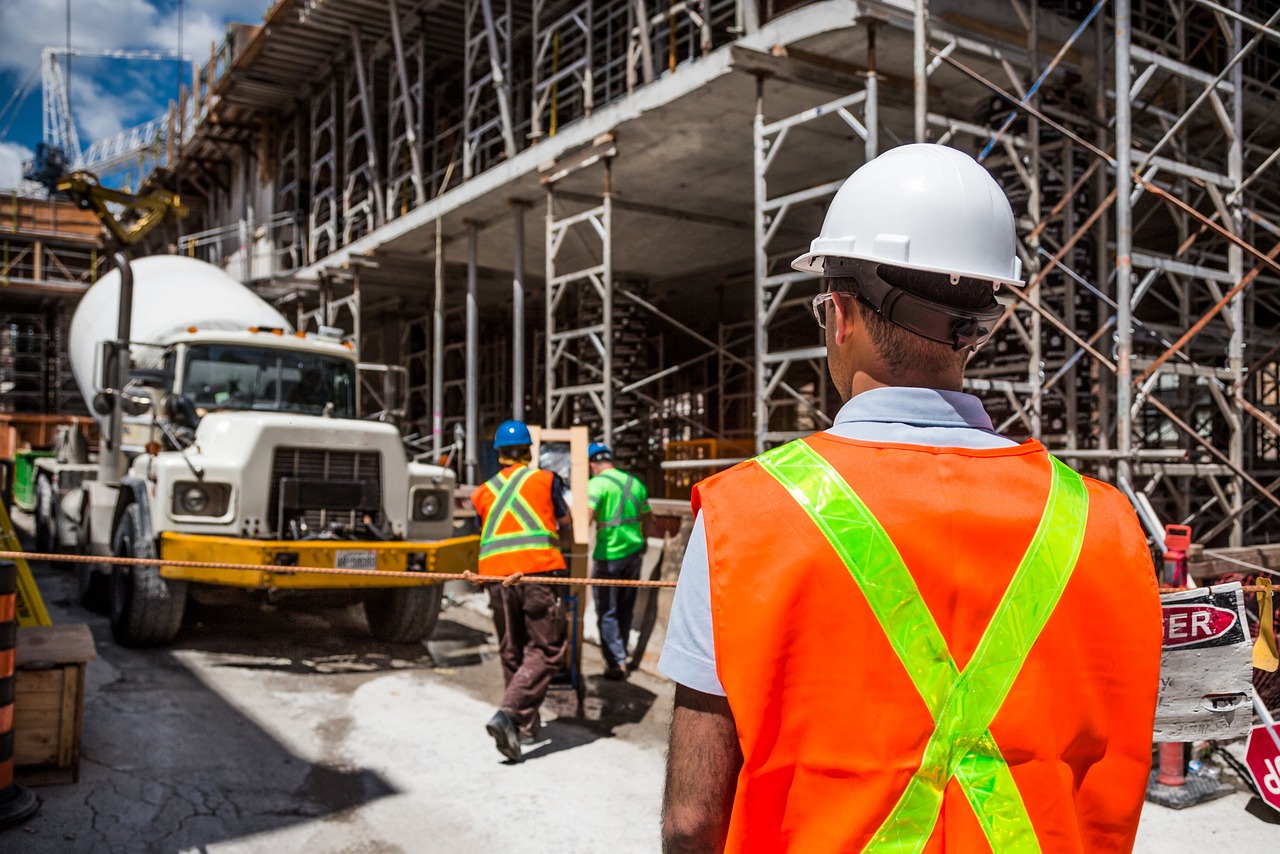
Construction workers require all sorts of safety equipment.
A) Necessary Safety Equipment
Here is a list of some of the necessary safety equipment of a construction worker.
- Hard Hat: Protects the head from falling objects
- Safety Glasses/Goggles: Shields the eyes from dust, debris, and flying particles.
- High-Visibility Vest: Enhances visibility and safety on the construction site.
- Steel-Toed Boots: Prevents foot injuries from heavy objects and tools.
- Earplugs or Earmuffs: Guards against noise-related hearing damage.
- Gloves: Protects hands from cuts, abrasions, and chemical exposure.
- Respiration: Provides respiratory protection in dusty or toxic environments.
Now, let’s consider some of the safety risks associated with construction work.
B) Risks
Here are some of the most common safety risks associated with being a construction worker.
- Falls: Construction workers often work at heights, making falls a significant risk. This includes falls from ladders, scaffolding, and elevated surfaces.
- Struck-By Hazards: Workers can be struck by heavy equipment, materials, or tools, leading to serious injuries.
- Electrical Hazards: Exposure to live wires and electrical equipment can result in electric shocks or electrocution.
- Trench and Excavation Hazards: Workers in excavation sites can face cave-ins and suffocation risks.
- Chemical and Respiratory Hazards: Exposure to dust, fumes, and hazardous chemicals can lead to respiratory problems.
Given these risks, there are several safety training courses a construction worker should partake in.
C) Relevant Safety Training
Here are some relevant safety training courses a construction worker should engage in.
- Working at Heights
- Excavation, Trenching, and Shoring
- 40 Hour HAZWOPER
- Respiratory Protection and Fit Testing
Click here to browse even more safety courses, or contact us today if you have specific questions.
2. Welders
Welders work in various industries, using specialized equipment to join metal parts together through welding processes, contributing to the fabrication of structures, machinery, and vehicles.
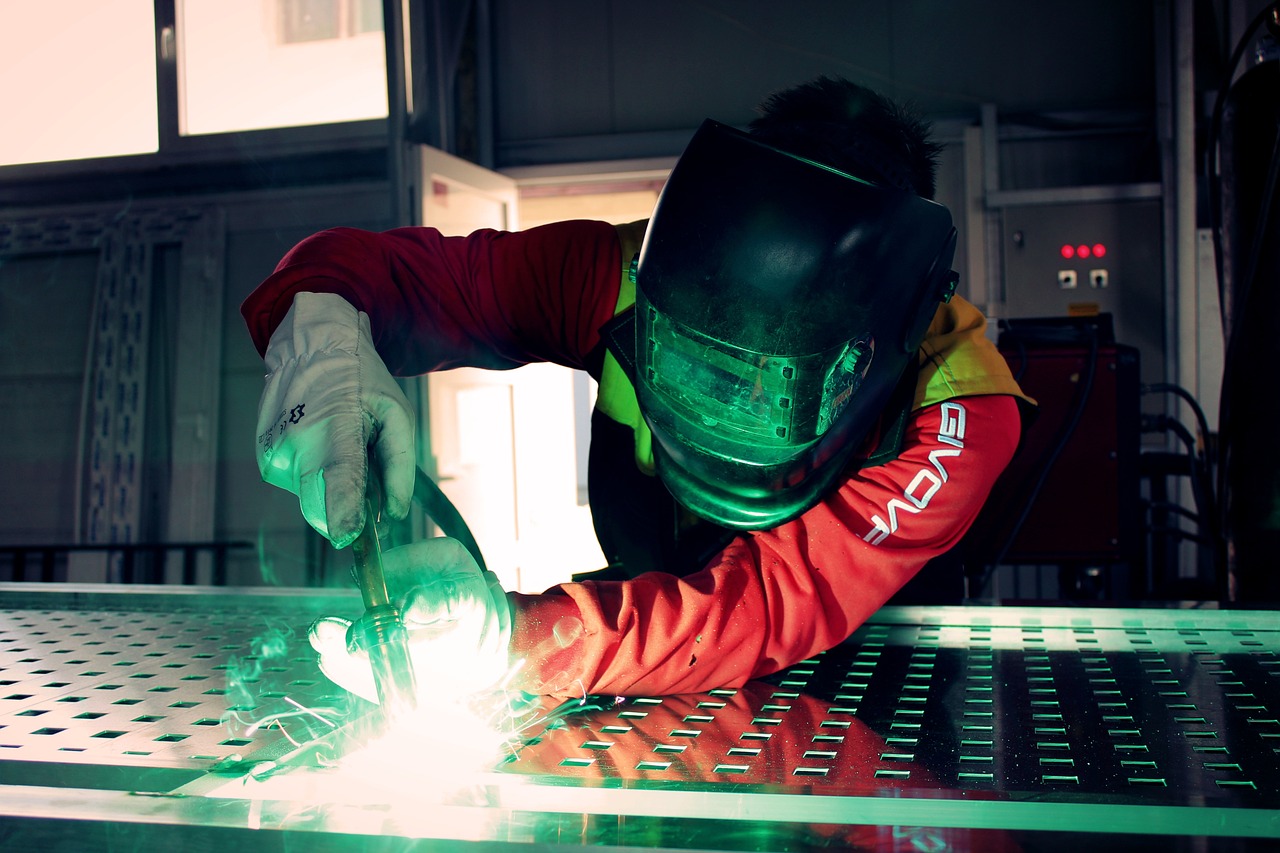
Without the proper safety equipment, welders are at great risk of arc flash and burns.
A) Necessary Safety Equipment:
Below is a list of some essential safety equipment if you are a welder.
- Welding Helmet: Shields the face and eyes from arc radiation and sparks.
- Welding Gloves: Protects hands and arms from heat, sparks, and metal splatter.
- Flame-Resistant Clothing: Prevents burns from welding sparks and molten metal.
- Respirator with Appropriate Filters: Protects against fumes and gases generated during welding.
- Welding Jacker or Apron: Provides additional protection for the upper body.
Now, let’s consider the safety risks involved in welding.
B) Risks
Here are some of the most common risks associated with being a welder.
- Arc Flash and Burns: Welders are at risk of burns from welding arcs and sparks, which can cause severe skin and eye injuries.
- Inhalation of Fumes: Welding produces harmful fumes and gases that, if inhaled, can lead to respiratory problems and long-term health issues.
- Eye and Face Injuries: Without proper protection, welding can cause damage to the eyes and face due to intense light and UV radiation.
Given these risks, a welder must be properly trained on a variety of topics.
C) Relevant Safety Training
If you are a welder, consider participating in the following safety training courses.
To browse even more safety courses, click here, or, if you have specific questions contact us today.
3. Roofers
Roofers specialize in roofing systems, installing, repairing, and maintaining roofs on residential, commercial, and industrial buildings, ensuring they remain watertight and structurally sound.
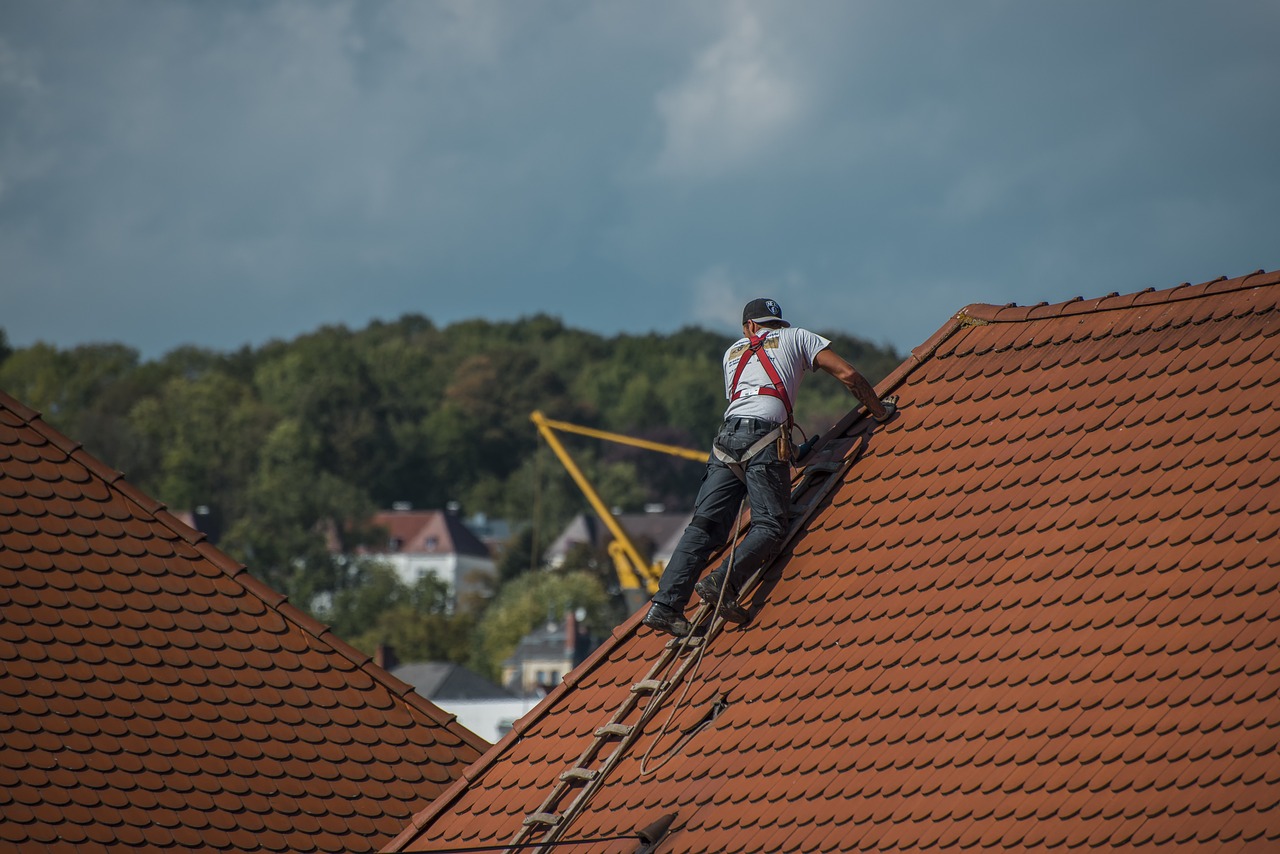
Roofing requires working at heights so wear a harness and non slip shoes!
A) Necessary Safety Equipment:
Roofers also benefit greatly from the use of safety equipment.
- Safety Harness: Prevents falls from roofs or elevated surfaces.
- Non-Slip, Steel-Toed Boots: Reduces the risk of slipping and foot injuries.
- Hard Hat: Protects the head from falling debris.
- Safety Glasses: Shields the eyes from flying particles and sunlight.
- Gloves: Protects hands from sharp roofing materials and tools.
- Knee Pads: Protects knees from sharp roofing materials and wear and tear.
These forms of safety equipment are necessary given the safety risks associated with roofing.
B) Risks
Here are some of the most common safety risks associated with roofing.
- Falls: Roofers work at elevated heights and are at risk of falling from roofs, ladders, or scaffolding.
- Slips and Trips: Roofing materials, tools, and debris can create slippery surfaces, leading to slips and falls.
- Heat-Related Illnesses: Roofers working in hot weather may be susceptible to heat exhaustion or heatstroke.
- Injuries from Roofing Tools: The use of sharp tools and equipment can result in cuts and puncture wounds.
- Exposure to Weather Elements: Roofers are exposed to weather conditions like rain, snow, and extreme temperatures, which can lead to cold-related or heat-related illnesses.
Roofers should prepare themselves for these risks not only through using the proper safety equipment but also by receiving the proper safety training.
C) Relevant Safety Training
If you are a roofer, consider the following safety training courses.
Click here to browse even more safety courses, or contact us today if you have specific questions.
4. Healthcare Workers
Healthcare workers encompass a wide range of professionals, including doctors, nurses, and allied health professionals, who provide medical care, diagnosis, treatment, and support to patients in hospitals, clinics, and other healthcare settings.

If you are a healthcare worker, you are used to wearing masks and gowns.
A) Necessary Safety Equipment:
Healthcare workers require very specific safety equipment.
- Surgical Masks: Protects against respiratory droplets and airborne pathogens.
- Disposable Gloves: Prevents contact with bodily fluids and contaminants.
- Gowns or Coveralls: Provides full-body protection in clinical settings.
- Face Shields or Safety Goggles: Protects the eyes and face from splashes and aerosols.
- N95 Respirators: Filters out airborne pathogens in high-risk situations.
Now, let’s consider the safety risks of working in the healthcare setting.
B) Risks
Healthcare workers also experience several risks as part of their regular duties.
- Exposure to Infectious Diseases: Healthcare workers are at risk of exposure to pathogens and infectious diseases from patients.
- Needle Stick Injuries: Handling needles and other sharp medical instruments can lead to needle stick injuries and potential blood borne infections.
- Patient Handling Injuries: Lifting and transferring patients can result in musculoskeletal injuries.
- Chemical Exposure: Exposure to chemicals and medications can lead to skin irritation and respiratory issues.
- Psychological Stress: Healthcare workers may experience high levels of stress due to the nature of their work.
Given these risks, healthcare workers must be trained on a number of topics.
C) Relevant Safety Training
If you are a healthcare worker, consider the following safety training courses.
To browse even more safety courses, click here, or, if you have specific questions contact us today.
5. Office Workers
Office workers are employed in a variety of industries and primarily perform administrative tasks such as data entry, document management, correspondence, and customer service, often using computers and office software to manage information and communication within a business or organization.
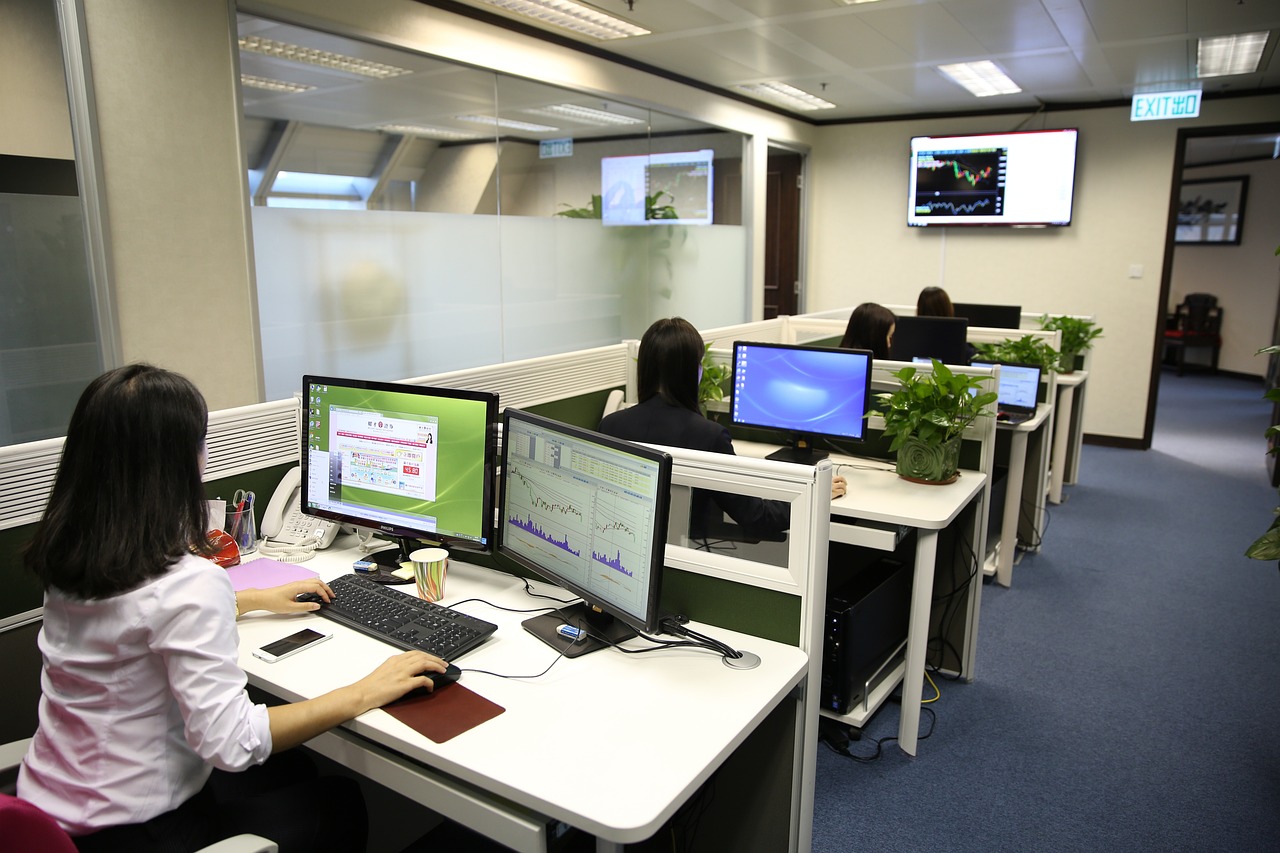
Working in an office presents its own unique challenges which can be combatted by various forms of safety equipment.
A) Necessary Safety Equipment:
Officer workers benefit from a lot of ergonomic based safety equipment.
- Ergonomic Chair and Keyboard: Promotes comfortable posture to prevent musculoskeletal issues.
- Anti-Glare Computer Screen: Reduces eye strain and discomfort.
- Earplugs or Noise-Canceling Headphones: Helps workers concentrate in a noisy office environment.
- Anti-Fatigue Mat: Reduces the risk of foot and leg discomfort for those standing at a desk.
- Blue Light Blocking Glasses: Protects eyes from the potential harmful effects of prolonged screen exposure.
- Wrist Rest: Supports wrist comfort when using a keyboard and mouse.
Now, we will consider the safety risks associated with office work.
B) Risks
Many people view office work as the least physically demanding work setting, however, this is not necessarily true.
- Ergonomic Issues: Prolonged sitting or improper ergonomics can lead to musculoskeletal disorders, such as back pain and carpal tunnel syndrome.
- Eye Strain: Extensive computer use can result in eye strain, dry eyes, and headaches.
- Slips, Trips, and Falls: Cluttered or poorly maintained office spaces can lead to slips, trips, and falls.
- Stress and Mental Health: Office workers may experience stress, anxiety, and burnout due to work-related pressures.
- Fire and Evacuation Risks: Although relatively rare, office buildings may have fire and evacuation hazards that require awareness and preparedness.
Due to these safety risks, officer workers also need to be properly trained.
C) Relevant Safety Training
If you work in an office, here are some relevant safety training courses to consider.
- Due Diligence for Employers and Managers
- Worker Health and Safety Awareness
- Workplace Violence and Harassment
Click here to browse even more safety courses, or contact us today if you have specific questions.
Trust ACUTE Environmental For Safety Training
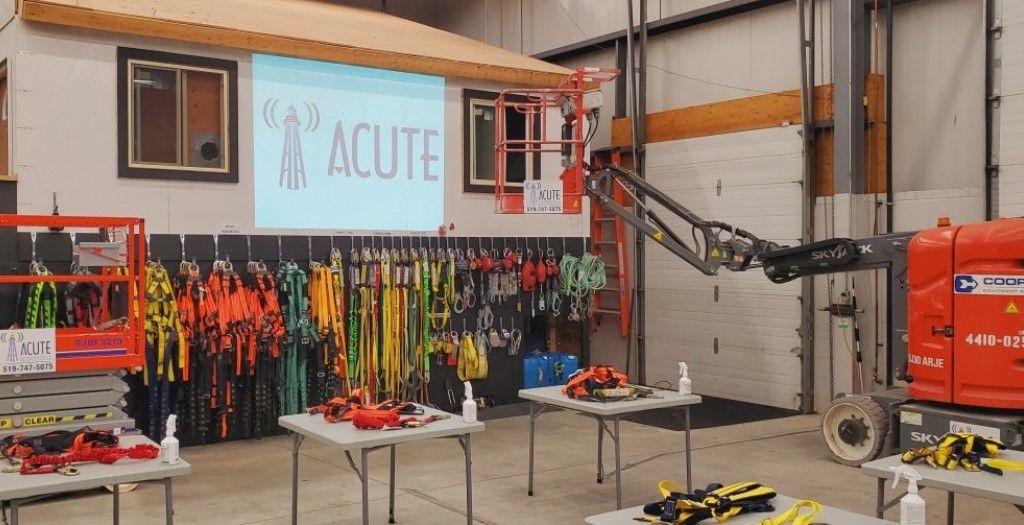
ACUTE can transform your workplace to be more safety compliant.
If you are in charge of supervising health and safety in the workplace or you are concerned that your workplace is not safety complaint, book a course with ACUTE. Here are some of the benefits of working with ACUTE:
- Open Door Instructor-Student Partnership – ACUTE’s training services emphasize client participation, staff foster relationships with clients and serve as a touchstone for advice anytime moving forward.
- Serving Your Team and Industry – With a vast array of clients in manufacturing, construction, health, academic, and government sectors, ACUTE brings the best safety practices from across the spectrum to your workplace.
- 100 Years Combined Experience – ACUTE provides comprehensive health and safety training, on-site safety services, and consulting services. With over 100 years of combined experience, our company staff offers more than theoretical or abstract ideas. ACUTE offers solutions!
- Track Record of Success – ACUTE is rated 4.9/5 stars on Google reviews, demonstrating our commitment to our clients, our quality, and our passion for training.
It is one thing to know the necessary safety equipment you need but another to actually understand how to use it. Contact Acute Environmental today if you have any questions or concerns regarding your safety.
What Our Customers Are Saying…
We were referred to ACUTE on behalf of our employer for an n95 mask fitting – the staff here are professional, personable, and informative.
I’d come back here for any safety-related training in a heartbeat.
Acute has been a staple in supporting my companies over the years and have always delivered quality and dependable service. Training programs are top shelf and a great facility for practical application. couldn’t recommend them more. keep up the great work folks.
Outstanding service provided by Acute, right from the customer support end, right through to the delivery of the session. Always professional, quick to respond, and always delivering services that exceed my expectations. Acute has an amazing team that is always helping us achieve better health and safety performance. So are grateful to have such a tremendous resource in Acute!
Hours of Operation and Contact Information:
Monday-Friday: 8:00 AM – 5:00 PM
Saturday-Sunday: Closed
Phone: (519) 747-5075
Fax: (519) 747-4608
Email: info@acuteservices.com

